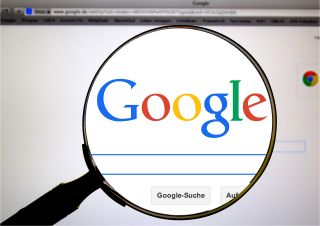Health
The Problem With "Dr. Google"
Let's explore cyberchondria and the pitfalls of online medical information.
Posted December 2, 2023 Reviewed by Ray Parker
Key points
- An overreliance on the internet for medical information can increase health-related anxiety.
- Cyberchondria, or the fear of illness that is worsened by online searching, is a growing problem.
- Boundaries with online information are important for health-anxious patients.

In this age of instantaneous information, our search for answers has never before been so easily and quickly gratified. The internet affords us the ability to research practically anything at any time—for better or worse.
If you search “left arm pain” on Google, for example, three immediate results will follow, one of which is that it is a sign of a heart attack, following “bone or joint injury” and “pinched nerve.” The anxious mind will naturally gravitate toward the most catastrophic option, fixating on a heart attack rather than a pinched nerve or joint injury. This example helps us understand how the internet can contribute to health anxiety.
Cyberchondria
In addition to the accessibility of information is the tendency to self-diagnose, with our diagnoses often based on information that is not necessarily reliable and found online. Though not recognized by the Diagnostic and Statistical Manual of Mental Disorders, Fifth Edition (DSM-5), “cyberchondria” (a play on words combining “cyber” and “hypochondria”), or phobias developed and worsened through repeated, maladaptive internet searching of medical information, is certainly on the rise. This type of “armchair diagnosis” only serves to escalate anxiety.
When we research physical symptoms online, we do not receive a personalized response; rather, we see overly generalized information that may or may not apply to our unique physicality and makeup.
Accessibility vs. Applicability
With increased accessibility has come increased confusion, as we can find ourselves overwhelmed by the sheer amount of information available to us. How, when our search results may yield everything from “normal pain” to “seek immediate medical attention,” could we not find ourselves overwhelmed and confused? Any medical information found online should be vetted, and the source should be considered with great scrutiny. As reputable as a website or informational source may be, it is not a replacement for personalized medical care. We need to be mindful not to confuse the accessibility of information with its applicability.
Common Pitfalls of Online Medical Information
- Unreliable sources
- Overly simplified diagnostic information
- Generalized conclusions of complicated symptoms
- Anecdotal rather than clinical information
- Information not vetted by medical professionals
- Information shared by “influencers” rather than by medical professionals
Creating Boundaries
Boundaries with online information are important—in a simple sense, knowing when to say “when.” For instance, seeking peer support in online forums or groups can be helpful, but too deep a dive can lead to further anxiety and overwhelm. One Incontinence-associated dermatitis (IAD) patient reported that at first, partaking in a Reddit group about illness anxiety was helpful, but after a while, it became overwhelming and triggering, making her anxiety even worse and creating more opportunities for drawing catastrophic, unlikely conclusions about her health.
The appeal of researching physical symptoms is its immediacy in providing an “answer,” even though that answer may be inaccurate. As humans, we are uncomfortable with waiting to find out. When we are in pain or discomfort, we want to know what is happening, what it is called, and how to treat it.
And this human desire can lead us down a slippery slope of internet sleuthing, resulting in incorrect medical diagnoses and undue fear and anxiety. Recognizing the perils of using the internet as a place to find sound medical advice can help us slow down and think twice before we rely completely on Dr. Google to soothe our discomfort.
References
LANE, PHIL. Understanding and Coping with Illness Anxiety. ROUTLEDGE, 2024.


